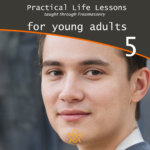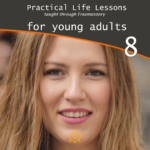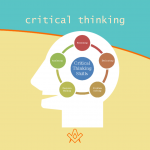A series of articles, produced by the square magazine, offering a guide to practical life lessons, taught through Freemasonry for young professionals, setting out in life after completing full time education.
Lesson 6 How to set and achieve goals for your personal and professional life
Why it is important to set goals for your personal and professional life
1. Setting goals provides direction and focus. By identifying what we want to achieve, we can create a clear roadmap for ourselves and prioritize our efforts accordingly. This allows us to avoid wasting time and resources on activities that do not align with our goals, and instead focus on those that will help us achieve our desired outcomes.
2. Goals motivate and inspire us. When we have specific goals to work towards, we are more likely to feel motivated and engaged in our pursuits. This can help us stay focused and committed, even when faced with challenges or obstacles.
3. Goals provide a sense of accomplishment. When we achieve our goals, we experience a sense of accomplishment and pride in our abilities. This can boost our confidence and self-esteem, and help us feel more fulfilled and satisfied with our personal and professional lives.
How to set and achieve goals for your personal and professional life
1. Identify your values and priorities: Before setting goals, it is important to understand what matters most to you in your personal and professional life. This will help you determine which goals align with your values and priorities and will be most meaningful and fulfilling to you.
2. Set specific, measurable, attainable, relevant, and time-bound (SMART) goals: When setting goals, make sure they are specific, measurable, attainable, relevant, and time-bound. This will help you create a clear plan and track your progress towards achieving your goals.
3. Create a plan of action: Once you have identified your goals, create a plan of action that outlines the steps you need to take to achieve them. This plan should include specific tasks, deadlines, and resources you will need to accomplish your goals.
4. Monitor and track your progress: Regularly monitor and track your progress towards achieving your goals. This will help you identify any challenges or obstacles that may arise and take corrective action to stay on track.
5. Adjust and adjust your goals as needed: As you work towards achieving your goals, be prepared to adjust and adjust your goals as needed. This may include setting new goals, changing your approach, or revising your plan of action.
6. Celebrate your successes: As you achieve your goals, celebrate your successes and take time to reflect on the progress you have made. This will help you stay motivated and continue working towards your personal and professional goals.
Top Tips
1. Start with a clear and specific vision for what you want to accomplish. This will help you stay focused and motivated throughout the process.
2. Create a plan that outlines the steps you need to take to achieve your goals. This will help you stay organized and on track.
3. Set realistic and attainable goals. It’s important to challenge yourself, but setting goals that are too difficult or unrealistic can lead to frustration and disappointment.
4. Prioritize your goals and focus on the ones that are most important to you. This will help you prioritize your time and resources, and ensure that you are working towards the things that matter most.
5. Keep a positive attitude and believe in yourself. It’s important to maintain a positive outlook and to believe in your ability to achieve your goals.
6. Stay focused and committed to your goals. It’s easy to get side-tracked and lose sight of your goals, but staying focused and committed will help you stay on track and make progress.
7. Surround yourself with supportive and positive people. Building a strong support network can help you stay motivated and on track, and can provide valuable advice and encouragement.
8. Monitor your progress and adjust your plan as needed. It’s important to track your progress and make adjustments to your plan as needed in order to stay on track and achieve your goals.
9. Celebrate your successes along the way. It’s important to recognize and celebrate your accomplishments, even the small ones, as this will help keep you motivated and on track.
10. Stay persistent and never give up. Achieving your goals won’t always be easy, but staying persistent and never giving up will help you overcome any obstacles and achieve your dreams.
If you found this article of interest, please share it with a young person in your family or community.
Full Series

Practical Life Lessons taught through Freemasonry
Learning and Development
A series of 10 learning and development articles, offering a guide to practical life lessons taught through Freemasonry for young adults setting out in life after full time education.
Overall, the lessons taught by Freemasonry are designed to help young adults develop the character, skills, and knowledge needed to succeed in life. By following the principles of brotherhood, charity, and self-improvement, young open minded individuals can build a strong foundation for a fulfilling and meaningful life.
The topics covered in the series are:
Lesson 1. How to communicate effectively and assertively.
Lesson 2. How to manage your finances and budget your money.
Lesson 3. How to take care of your physical and mental health.
Lesson 4. How to build and maintain healthy relationships.
Lesson 5. How to handle difficult emotions like anger, sadness, and fear.
Lesson 6. How to set and achieve goals for your personal and professional life.
Lesson 7. How to be open-minded and embrace diversity and inclusion.
Lesson 8. How to be a responsible and respectful member of your community.
Lesson 9. How to be a good partner and parent, if and when you decide to have a family.
Lesson 10. How to be adaptable and resilient in the face of challenges and change.
more ...
 Practical Life Lessons taught through Freemasonry - P1 A series of articles offering a guide to practical life lessons taught through Freemasonry for young adults setting out in life after full time education - Lesson 1; How to communicate effectively and assertively ? |
 Practical Life Lessons Taught Through Freemasonry - P2 A series of articles offering a guide to practical life lessons taught through Freemasonry for young adults setting out in life after full time education - Lesson 2: How to manage your finances and budget your money? |
 Practical Life Lessons Taught Through Freemasonry - P3 A series of articles offering a guide to practical life lessons taught through Freemasonry for young adults setting out in life after full time education - Lesson 3: How to take care of your physical and mental health |
 Practical Life Lessons taught through Freemasonry - P4 A series of articles offering a guide to practical life lessons taught through Freemasonry for young adults setting out in life after full time education - Lesson 4: How to build and maintain healthy relationships |
 Practical Life Lessons taught through Freemasonry - P5 A series of articles offering a guide to practical life lessons taught through Freemasonry for young adults setting out in life after full time education - Lesson 5: How to handle difficult emotions like anger, sadness, and fear |
 Practical Life Lessons taught through Freemasonry - P6 A series of articles offering a guide to practical life lessons taught through Freemasonry for young adults setting out in life after full time education - Lesson 6: How to set and achieve goals for your personal and professional life |
 Practical Life Lessons taught through Freemasonry - P7 A series of articles offering a guide to practical life lessons taught through Freemasonry for young adults setting out in life after full time education - Lesson 7: How to be open-minded and embrace diversity and inclusion for your personal and professional life |
 Practical Life Lessons taught through Freemasonry - P8 A series of articles offering a guide to practical life lessons taught through Freemasonry for young adults setting out in life after full time education - Lesson 8: How to emerge as a responsible and respectful member of your community inyour personal and professional life |
 Practical Life Lessons taught through Freemasonry - P9 A series of articles offering a guide to practical life lessons taught through Freemasonry for young adults setting out in life after full time education - Lesson 9: How to be a good partner and parent, if and when you decide to have a family. |
 Practical Life Lessons taught through Freemasonry - P10 A series of articles offering a guide to practical life lessons taught through Freemasonry for young adults setting out in life after full time education - Lesson 10. How to be adaptable and resilient in the face of challenges and change. |
Recent Articles: skills
 7 Soft Skills Taught In Freemasonry Discover how Freemasonry nurtures seven irreplaceable soft skills—collaboration; Communication, Teamwork, Empathy, Flexibility, Conflict Resolution, Active Listening, and Trustworthiness. Explore how these essential human attributes, grounded in emotional intelligence and ethical judgment, remain beyond the reach of AI. |
 Freemasonry and Reskilling in the age of AI The article explores the challenges and strategies organizations face in reskilling their workforce in the era of automation and artificial intelligence. It highlights the need for companies to view reskilling as a strategic imperative and involve leaders and managers in the process. The article also emphasizes the importance of change management, designing programs from the employee's perspective, and partnering with external entities. |
 Ten Central Commandments or Principles of Freemasonry Embrace the wisdom of Freemasonry's teachings in your personal journey towards self-improvement and stronger leadership. By upholding virtues of integrity, compassion, and respect, and uniting these with a commitment to continuous learning and social responsibility, inspire change. Transform yourself and the world around you, fostering a legacy of positivity and enlightenment. |
 Freemasonry: A Guide to Fatherhood In the sacred halls of Freemasonry, fathers discover a hidden power to transform their parenting journey. With its timeless values, supportive community, and life-enriching teachings, Freemasonry empowers fathers to provide a moral compass, foster self-improvement, build stronger connections, and embrace the confidence and wisdom needed to navigate the complex realm of fatherhood. |
 Courage as a core value in Freemasonry Freemasonry, a revered fraternity, prioritizes virtues like honesty and charity. However, courage is foundational. From Plato to Maya Angelou, courage is vital for other virtues. Freemasonry's teachings, referencing events like Gettysburg, emphasize diverse courage forms. In today's divided world, Masons promote and exemplify courage, understanding its importance in facing challenges. |
 How Freemasonry Cultivates Ideal Entrepreneurial Traits Freemasonry's cryptic rituals hold timeless lessons for building entrepreneurial greatness. Through tests of passion, vision and skill, Masonic teachings forge ideal traits like grit, creativity and alliance-making needed to seize opportunity and elevate enterprises. The right commitment unlocks code for entrepreneurial success. |
 What you see praiseworthy in others "What you see praiseworthy in others, carefully imitate, and what in them may appear defective, you will in yourself amend". This passage of Masonic ritual (Taylors Working, Address to the w |
 How to Learn Ritual with a Learning Disorder So what do you do when faced with that little blue book? Most Masons when first looking at the ritual book can understandably be fazed – the tiny print, the missing words, the questions and answers! Learning ritual can be a challenging task for anyone, especially individuals with learning disorders, but it is not impossible. Here are some tips to help make the process easier. |
 A "mind palace", also known as a "memory palace", is a technique for memorizing and recalling information. How would your life change if you could remember anything and everything? Discover the 'Mind Palace' and all will be revealed. |
 What is leadership and who does freemasonry help develop those skills needed to be a better leader |
 A story of the 'Ruffians' – those individuals whose paths cross ours, who feel entitled to seize and consume the property of others that they have not earned. A lesson to build character to be a better citizen of the world. |
 Now we are back in the Lodge room once again, maybe it is time to review how we learn and deliver ritual and look at different ways of improving that process. |
 Making an advancement in Masonic Knowledge can become far easier when you 'learn how to learn'. |
 Learn how to practise Masonic meditation in a busy world with all its care and employments |
 Struggling to learn your ritual? Become a 5-Minute Ritualist with the aid of a book of the same name. |
 Day in the life of a Freemason As we start a new year, maybe start it with a new habit? |
 Ten Basic Rules For Better Living Ten Basic Rules For Better Living by Manly P Hall |
 How can we use masonic leadership skills to avoid confrontational situations? |
 How the Trivium is applied to Critical Thinking - {who, what, where, when} - {how} - {why} |
 The Seven Liberal Arts - why 'seven', why 'liberal', why 'arts'? |
 How to improve your public speaking skill with 6 techniques |
 Do you need to speak in public, or present Masonic ritual without notes ? |
 What are logical Fallacies and how to spot them |
 Share one easy tip to learn masonic ritual; Some good tips from Facebook followers |
 How can we use the 7 secrets of the greatest speakers in history |
 What is a critical thinker and what are their characteristics? |
 Share one personal skill Freemasonry helped you to improve? How can we make practical use of the lessons taught in Masonic writings? |
 An introduction to the art of public speaking - speak with confidence |
 Seven Liberal Arts and Sciences What do you know about Seven Liberal Arts and Sciences |
 Three Words That Will Change Your Life This article discuss a common situation found in many lodges - a difficulty in holding a conversation with a stranger. |
 Al - Khwarizmi live c750 - c820 is credited as being the father of Algebra, being asked what is Man, give his answer in an algebraic expression |
masonic knowledge
to be a better citizen of the world
share the square with two brothers

click image to open email app on mobile device








